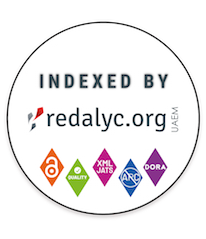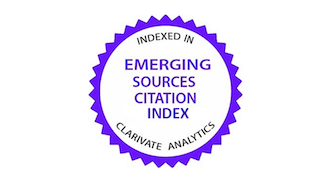Tropical corn populations tolerant to acid soils.
DOI:
https://doi.org/10.15517/am.v5i0.25070Abstract
Currently, five tropical maize populations from CIMMYT are being bred for tolerance to acid soils through a full-sib recurrent selection scheme. Three cycles of selection from each population were evaluated in a split-plot design, with a varied number of replications under five environments (with normal soils, and the remaining four with varying degrees of soil stress). The observed genetic gains from these populations were highly significant: 4.72 % per cycle at all environments, 4.90% per cycle in acid soil environments (LSA), and 4.21 % per cycle for the normal soil location (LNA). The results suggest adequate genetic variability and high heritability for tolerance to soil acidity. In comparative trials, these populations yielded an average of 2.29 and 6.25 t/ha in the three LSA and two LNA environments, respectively. Under the same environments, the controls used (Tuxpeño, Pool 26 and Suwan-1) yielded an average of 1.28 and 5.56 t/ha.
Downloads
References
BREWBAKER, J. L. 1985. The tropical environment for maize cultivation. En: Breeding strategies for maize production improvement in the tropics. A. Brandolini y F. Salamini Eds. FAO. Roma, Italia.
DUQUE VARGAS, l; PANDEY, S.; GRANADOS, G.; CEBALLOS, H.; KNAPP, E. 1994. Inheritance of tolerance to soil acidity in tropical maize. Crop. Sci. 34 (En impresión).
EDMEADES, G. O.; BOLAÑOS, J.; LAFFITTE, H. R.; RAJARAN, S. ; PFEIFFER, W.; FISCHER, R. A. 1989. Traditional approaches to breeding for drought resistance in cereals. En: F.W.G. Baker (Ed.) Drought resistance in cereals - Theory and Practice, ICSU Press, Paris, Francia.
GRANADOS, G.; PANDEY, S.; CEBALLOS, H. Response to selection for tolerance to acid soils in a tropical maize population. Crop. Sci. 33: 936-940
PANDEY, S.; CEBALLOS, H.; KNAPP, E. B.; VARGAS, J. D. 1992. Genetic variability in maize for adaptation to acid soils. Simposio Internacional sobre Estresse ambiental: O milho em perspectiva. Marzo 8-13, 1992, Belo Horizonte (Brasil).
MAGNAVACA, R.; GARDNER, C.O.; CLARK,R. B. 1987. Inheritance to aluminum tolerance in maize. En: W.H. Gabelman y B.C. Loughman (Eds), Genetic aspects of plant mineral nutrition. Martinus Nijhoff. La Haya, Holanda.
PANDEY, S.;CEBALLOS, H.; KNAPP, E. B.; V ARGAS, J. D. 1992. Genetic variabi1ity in maize for adaptation to acid soils. En: Simposio Internacional sobre Estress ambiental: O milho en perspectiva. Marzo 8-13, 1992. Belo Horizonte, Brasil.
SAS; USER'S GUIDE: STATISTICS. 1985. Versión 5 Ed. SAS Institute, Inc., Cary, N.e., USA.
SANCHEZ, P. A. 1977. Advances in management of Oxisols and Ultisols in tropical South America. En: International Seminar on soil, environment, and fertility management in intensive agriculture. Tokyo, Japón.
Downloads
Published
How to Cite
Issue
Section
License
1. Proposed policy for open access journals
Authors who publish in this journal accept the following conditions:
a. Authors retain the copyright and assign to the journal the right to the first publication, with the work registered under the attribution, non-commercial and no-derivative license from Creative Commons, which allows third parties to use what has been published as long as they mention the authorship of the work and upon first publication in this journal, the work may not be used for commercial purposes and the publications may not be used to remix, transform or create another work.
b. Authors may enter into additional independent contractual arrangements for the non-exclusive distribution of the version of the article published in this journal (e.g., including it in an institutional repository or publishing it in a book) provided that they clearly indicate that the work was first published in this journal.
c. Authors are permitted and encouraged to publish their work on the Internet (e.g. on institutional or personal pages) before and during the review and publication process, as it may lead to productive exchanges and faster and wider dissemination of published work (see The Effect of Open Access).



























